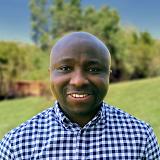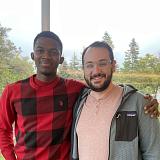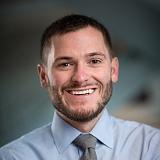
Research to Advance Health for All

Research to Advance Health for All
Our department is dedicated to conducting research that advances health outcomes for all individuals.
We recognize that disparities in healthcare and health outcomes exist, and we are committed to identifying and addressing the root causes of these disparities through rigorous scientific inquiry. Through collaborative partnerships with communities and other organizations, the Department of Population Health Sciences strives to promote health equity and improve the health of all individuals.
Jenna Murray
My name is Jenna Murray, and I’m an aspiring physician–scientist in the University of Utah's Medical Scientist Training Program (MD/PhD). I'm a health systems researcher focused on Native American populations and health systems, substance use, and maternal health. My doctoral work with Dr. Michelle Debbink centers on the CEREMONY study, which develops, implements, and evaluates a culturally rooted perinatal substance use program for Native American pregnant and postpartum individuals.
Who are your partners?
In addition to the incredible research teams I work with, I have the honor of partnering with several Tribal and community organizations across the Mountain West. The CEREMONY project is conducted in full partnership with Sacred Circle Healthcare, a system owned and operated by the Confederated Tribes of the Goshute Reservation. I've learned so much from Sacred Circle's team—especially their elders—and spending time with them feels like home. CEREMONY also partners with the Urban Indian Center of Salt Lake, Utah Support Advocates for Recovery Awareness, and the Paiute Indian Tribe of Utah.
Through smaller projects in environmental health and K-12 STEM education, I’ve also built research partnerships with my own community, the Eastern Shoshone Tribe, as well as the Ute, Northern Arapahoe, and Northwestern Shoshone Tribes.
What is something you’re proud of in your work?
I’m most proud of the way our team practices community-based participatory research and treats our partners as true equals in every step and decision. As a Native woman, I am acutely aware of the extractive research practices that have historically harmed Indigenous and other marginalized communities. In contrast, our team strives to show up every day with authenticity, humility, and a desire to learn. We’re not perfect and inevitably make mistakes, but our foundation is built on mutual respect, shared values, and reciprocity. I wouldn’t feel comfortable doing this work any other way!
What is something you’re excited about?
I'm excited to start working on my dissertation! My research uses mixed methods to explore how kinship, relationships, and community shape substance use recovery among Native individuals. I plan to conduct a longitudinal social network analysis of CEREMONY participants as they complete the program. I’ll be leading primary data collection, which is both daunting and exciting, but I look forward to hearing and sharing the stories and strengths of Native mothers.
What brought you to PHS?
After earning my MPH at Dartmouth College, I worked for the National Institute on Drug Abuse’s Native American Program. There, I was introduced to Indigenous researchers doing community-centered work and immediately fell in love with that approach. I chose the University of Utah for my MD/PhD because of its “less-traditional” PhD options, such as Population Health Sciences, and felt that the department genuinely valued my unique interests and lived experiences.
What does a perfect weekend look like for you?
My perfect weekend includes a fall hike, overpriced but delicious coffee, a good horror novel, and time with the people I love.









